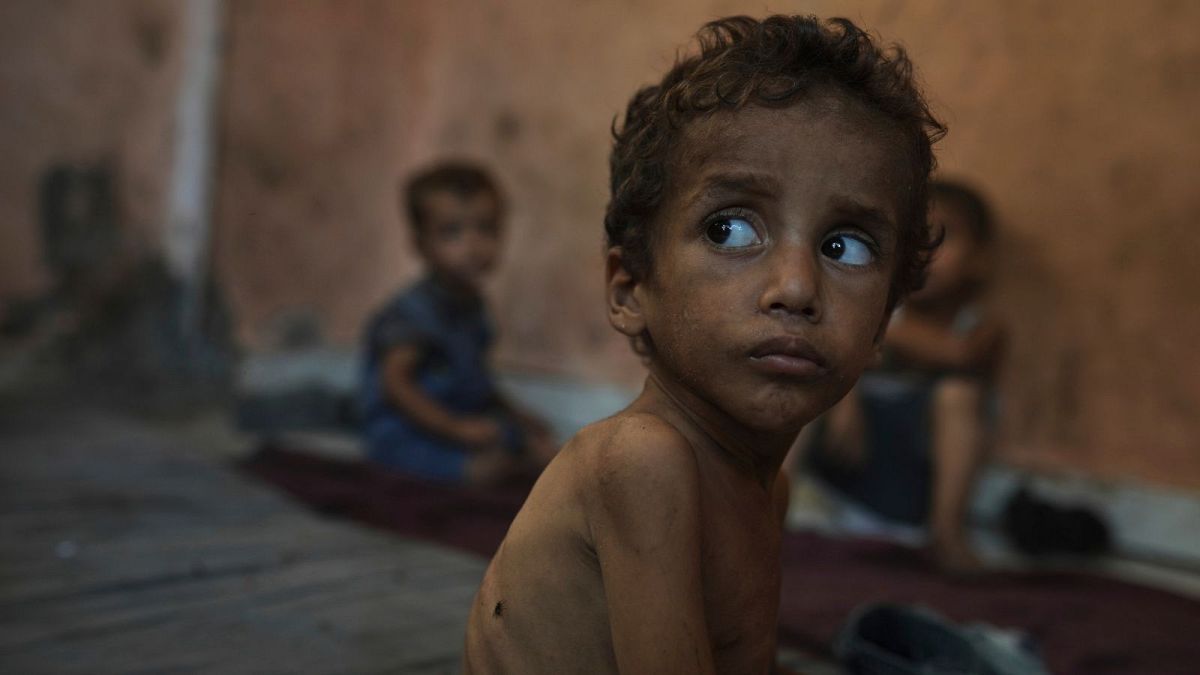

In recent weeks, global attention has been drawn to a series of health challenges impacting diverse regions and communities across the world. These issues, though varied in nature, highlight an ongoing need to address both immediate humanitarian concerns and broader environmental factors that threaten well-being.
In the heart of the Gaza Strip, a profound humanitarian crisis is escalating. The Patient’s Friends Hospital, located in northern Gaza, is currently experiencing an unprecedented surge in cases of severely malnourished children. The gravity of the situation is distressing, with many children arriving so weakened by hunger that they are unable to cry or move. This mirrors broader findings shared by Médecins Sans Frontières, which reported that a quarter of all young children, and pregnant or breastfeeding women recently screened at clinics, are suffering from malnutrition. This deepening crisis is further exacerbated by operational challenges faced by humanitarian agencies. Philippe Lazzarini, the head of the United Nations Relief and Works Agency, noted the collapse of the humanitarian system, as even aid workers are fainting from hunger, underscoring the dire circumstances affecting everyone involved.
In parallel, another study sheds light on a more silent yet pervasive health concern: air pollution. Often described as ‘the invisible threat,’ chronic exposure to polluted air has been linked to an increased risk of dementia. This emerging evidence contributes to a growing body of research that suggests the quality of the air we breathe has significant implications for brain health over time. The findings urge policymakers and individuals to prioritize environmental quality as a critical factor in public health strategies globally. Addressing air pollution not only improves respiratory health but also mitigates long-term cognitive decline, providing a multifaceted approach to enhancing quality of life.
Simultaneously, in Italy, public health officials are responding to a localized outbreak of the West Nile virus, a mosquito-borne illness. To date, there have been 32 reported cases, including two fatalities. The majority of cases have been identified in the province of Latina, situated approximately 100 kilometers south of Rome. The local spread of the virus underscores the global challenge of managing vector-borne diseases, which are anticipated to become more prevalent with shifting climate patterns. Public health initiatives remain focused on controlling mosquito populations and raising awareness of preventative measures to mitigate the spread of this illness.
The interconnectedness of these global challenges—ranging from acute humanitarian crises to long-term health risks associated with pollution and emerging infectious diseases—highlights the importance of a holistic approach to health. It requires the collaboration of international bodies, national governments, and local communities to implement effective, sustainable solutions. Efforts must be directed towards not only addressing immediate needs but also investing in preventive infrastructure and promoting resilient systems that can withstand and adapt to future challenges.
As we reflect on these issues, there is a collective opportunity to reinforce the foundations of global health by fostering environments that support wellness and resilience. Whether it is by improving nutritional access in conflict zones, reducing pollution, or managing the spread of infectious diseases, the path forward lies in embracing a unified vision of health that accounts for the intricate balance between human activity and environmental stewardship. Through mindful and collaborative actions, we can pave the way for a healthier, more sustainable future for all.
Source: {link}
